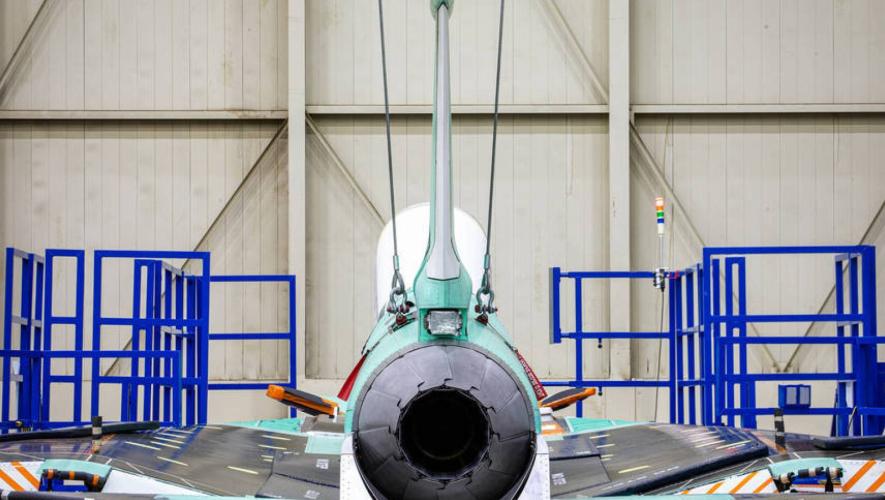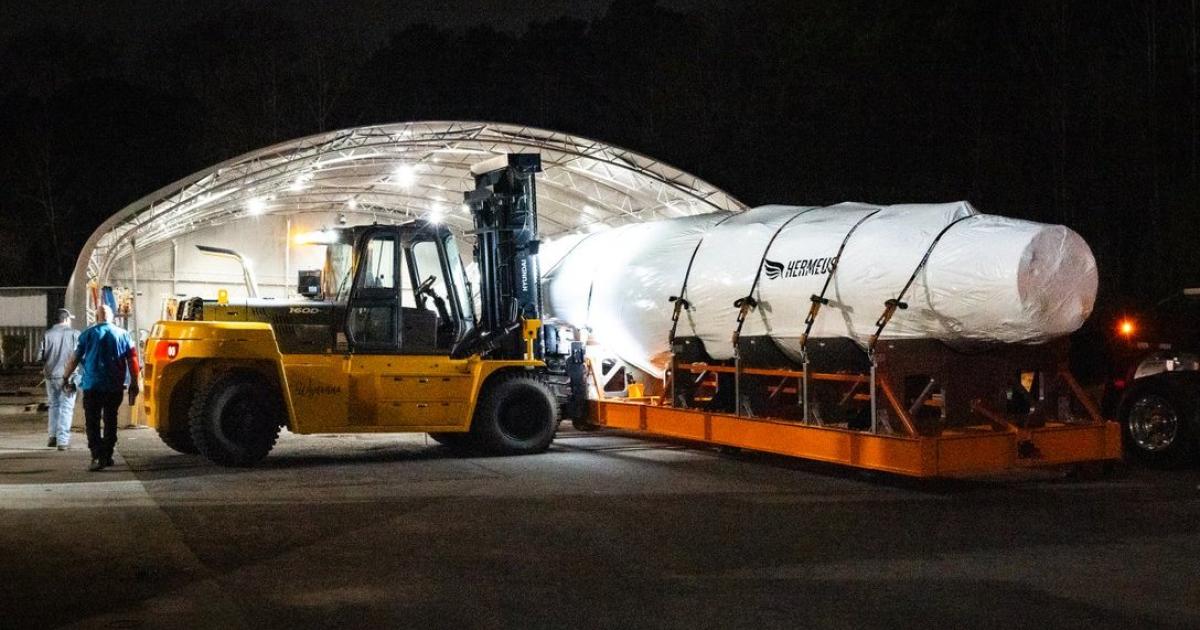Latest FutureFlight Videos
All Videos
FUTURE FLIGHT
Sign up for our free newsletter
News and analysis covering cutting-edge aviation technology and business models, including zero-carbon propulsion, eVTOL aircraft, automation and autonomy, and new infrastructure.
FutureFlight News
FutureFlight
Monte Plans to Add Eviation's All-electric Alice Aircraft to Its Leasing Portfolio
The UK company will offer regional airline operators finance or lease terms for the nine-passenger aircraft expected to gain type certification in 2027.

FutureFlight
FlightSafety Will Train Lilium Jet eVTOL Aircraft Pilots
The training specialist is also making a preliminary eSim device representing the vehicle's cockpit that engineers can use for development and certification work.

FutureFlight
Archer Completes Midnight eVTOL Aircraft Assembly
Archer plans to begin flight testing its Midnight eVTOL air taxi this summer.

FutureFlight
FutureFlight Weekly News Roundup
A weekly roundup of significant milestones and achievements from companies and organizations working to transform aviation with new types of aircraft, propulsion systems, flight controls, and business models.

FutureFlight On The Radar
EASA Consults on Proposals to Regulate Noise From eVTOL Aircraft
The European aviation safety agency is giving stakeholders until June 15 to respond to its Environmental Protection Technical Specifications.
FutureFlight On The Radar
FAA Issues Revised Concept of Operations for Urban Air Mobility
The FAA's UAM ConOps document provides a blueprint for the introduction of eVTOL air taxi flights in the National Airspace System.
FutureFlight
Wisk and Japan Airlines Partner To Bring Autonomous Air Taxi Flights to Japan
Japan Airlines has signed a memorandum of understanding with California-based eVTOL air taxi developer Wisk Aero to bring autonomous air taxi flights to Japan.

FutureFlight
U.S. Air Force Contracts Xwing To Study Defense Applications for Self-flying Aircraft
Autonomous flight pioneer Xwing will work with the U.S. Air Force to study the use of autonomous flight technology for defense applications.

FutureFlight
Honeywell Publishes Advanced Air Mobility Certification Guidance and Backs New Green Seaplane
This week, the aerospace group, which produces propulsion and avionics systems, agreed to help Swiss start-up Jekta to develop its planned electric amphibious aircraft.

FutureFlight
Vertical Pushes Back Type Certification Target Date for VX4 eVTOL Aircraft to Late 2026
A letter to shareholders says technical issues relating to the certification process are the main reason for the delay, but the company's first-quarter balance sheet shows depleted cash reserves.

FutureFlight
Cormorant Evaluates Wood as the Basis for a More Environmentally Sustainable Seaplane
Sitka spruce trees growing in coastal areas of western Canada could be used to make substantial parts of the wings and airframe for a new amphibious aircraft.

FutureFlight
Car Designers Are Defining the Look and Feel of eVTOL Aircraft
Supernal has received international recognition for the design of the cabin for its SA-1 eVTOL vehicle.

FutureFlight
Joby Secures $180 Million Investment from Longtime Backer Baillie Gifford
Joby Aviation has received a $180 million investment from one of its long-term investors, Baillie Gifford.

FutureFlight
FutureFlight Weekly News Roundup
A summary of significant milestones and achievements from companies and organizations working to transform aviation with new types of aircraft, propulsion systems, flight controls, and business models.

FutureFlight
Lilium Seeks $250 Million To Sustain Work on eVTOL Aircraft as Share Price Hovers below Minimum
The German company says it already has a commitment for $100 million from an existing investor that is also willing to provide a further $75 million in matching funds.

FutureFlight
Alaska Airlines Donates Dash 8 Aircraft for ZeroAvia's Hydrogen Propulsion Project
The former Horizon Air regional airliner will be fitted with ZeroAvia's ZA2000 powertrain, which combines fuel cells with electric motors to run on liquid hydrogen.

FutureFlight
Advanced Air Mobility Evangelists Get Reality Check at Revolution.Aero Conference
Industry experts explained how multiple factors—including tightening capital markets and regulatory complexity—point to a more gradual fulfillment of the potential for new electric aircraft.

FutureFlight On The Radar
World Economic Forum Report Highlights Infrastructure Needs for Zero-carbon Flights
In a new white paper, the World Economic Forum spells out what airlines and airports will need to do to ensure that new aircraft with battery-electric and hydrogen-powered propulsion systems are viable.
FutureFlight
U.S. Struggles with Sustainable Lithium-ion Battery Supply Chain
Demand for lithium-ion batteries is expected to skyrocket in the coming decade as new electric aircraft fleets take to the skies. Will the U.S. be ready?

FutureFlight
NASA's X-59 Supersonic Aircraft Set To Fly This Year
Lockheed Martin, working with NASA, has installed the tail section of the X-59 supersonic aircraft in preparation for first flight this year.










